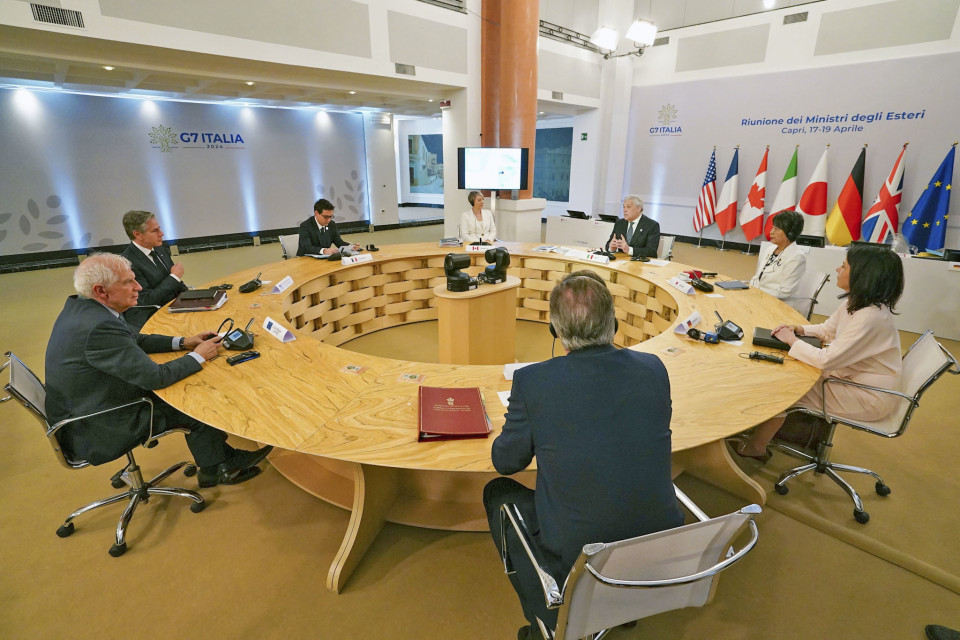The Group of Seven foreign ministers agreed Thursday that they will continue working closely in dealing with the situation in the Middle East, as tensions mount in the region in the wake of Iran's recent unprecedented attack on Israel.
As the top diplomats gathered on the Italian resort island of Capri for their three-day meeting, the United States and Britain announced additional sanctions on Iran, targeting entities and individuals involved in its drone and missile industries.
"As I discussed with my fellow G7 leaders the morning after the attack, we are committed to acting collectively to increase economic pressure on Iran," U.S. President Joe Biden said in a statement. "Our allies and partners have or will issue additional sanctions and measures to restrict Iran's destabilizing military programs."

While calling for deescalation, Italian Foreign Minister Antonio Tajani, the G7 meeting's chair, said sanctioning Iran is on the agenda and offered support to Israel.
Japanese Foreign Minister Yoko Kamikawa told her counterparts that she is "deeply concerned" that the Iranian attack has further deteriorated the situation in the region, and strongly condemns such escalation, according to the Japanese government.
The gathering comes after Iran unleashed a barrage of missiles and drones on Israel last weekend in what it says was retaliation for a strike carried out by Israel on the Iranian embassy's consular section in Damascus on April 1.
Seven Iranian military officers, including a top Islamic Revolutionary Guard Corps commander, were killed.
The Iranian forces also reportedly seized an Israeli-linked, Portuguese-flagged cargo ship as it was sailing in international waters in the Gulf of Oman on Saturday.
The foreign ministers are set to release a communique on Friday as their gathering concludes. They will condemn "in the strongest terms" the Iranian attack on Israel and show their "full solidarity and support" for the country in the statement, diplomatic sources said earlier.
The statement will also stress the importance of an immediate cease-fire in the conflict between Israel and Hamas and condemn the Palestinian militant group's surprise attack on Oct. 7 while refraining from directly criticizing Israeli military operations in the Gaza Strip, according to the sources.
During talks on Thursday, Kamikawa called for an immediate cease-fire to establish an environment in which humanitarian assistance activities can be carried out in Gaza and the release of hostages can be achieved, the Japanese Foreign Ministry said in a press release.
The G7 diplomats also discussed Russia's war in Ukraine with Ukrainian Foreign Minister Dmytro Kuleba and NATO Secretary General Jens Stoltenberg.
During the opening day's working dinner, the G7 ministers agreed to step up collaboration with "international partners" in addressing global challenges, according to the Japanese ministry, apparently with "Global South" developing and emerging countries in mind.
Kamikawa stressed the importance of the rule of law and human dignity and explained her nation's efforts to strengthen relations with Indo-Pacific countries, the ministry said, amid China's expanding clout in the region.
The G7 comprises Britain, Canada, France, Germany, Italy, Japan and the United States, plus the European Union.
Related coverage:
G7 finance chiefs say excessive forex moves bad for global economy
Yellen says she thinks U.S. Steel should remain in American hands
G7 top diplomats to condemn Russia-North Korea military cooperation










